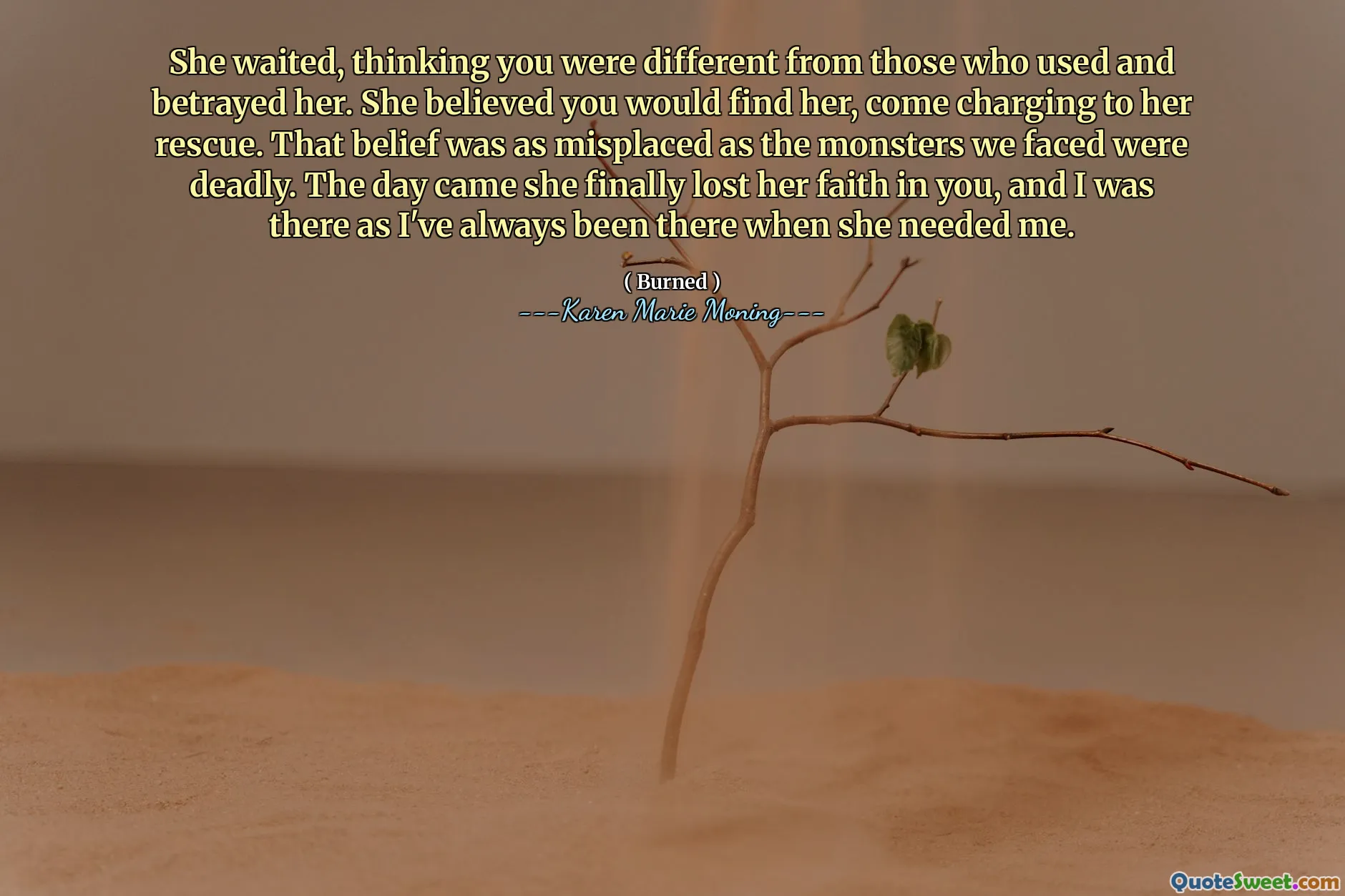
She waited, thinking you were different from those who used and betrayed her. She believed you would find her, come charging to her rescue. That belief was as misplaced as the monsters we faced were deadly. The day came she finally lost her faith in you, and I was there as I've always been there when she needed me.
This quote poignantly captures the complex dynamics of trust, disappointment, and loyalty. It paints a vivid picture of someone who harbors hope and belief in another, despite past betrayals and the scars they leave behind. The act of waiting symbolizes patience and perhaps a desperate cling to the possibility of better treatment or genuine care. Her assumption that the person she trusted would rescue her underscores the power of hope and expectation in human relationships, especially those built on vulnerability. However, the reality hits hard—those assumptions are often misplaced, just like the monsters that are deadly and real threats. The analogy suggests that trusting blindly without awareness of potential harm can be perilous. When she finally loses her faith, it's a moment of painful awakening—a critical change in perspective that signifies growth, disillusionment, or perhaps self-preservation. The presence of the narrator since the beginning symbolizes steadfastness and unconditional support, emphasizing themes of loyalty and unwavering presence amid betrayal and disillusionment. This narrative resonates deeply because it reflects a universal experience: learning to discern genuine support from false promises and understanding the importance of self-reliance when trust is broken. The emotional depth in these actions underscores the vulnerability involved in trusting others and the strength required to move on when that trust is shattered. Life often presents such tests of belief and endurance, which, when navigated, lead to resilience and a clearer understanding of personal boundaries and the true nature of the people around us.



